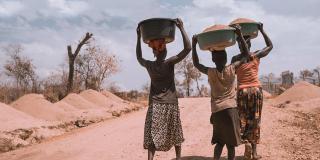
The coronavirus pandemic is hitting the world’s poorest hardest, plunging people into poverty. No truer is this than in Rhino Camp Refugee Settlement in north-western Uganda, where VSO volunteer Daniel Adotu has been making sure the camp’s most vulnerable residents don’t go hungry.
Rhino Camp is home to more than 120,000 people, many seeking refuge from conflict in their home countries, such as South Sudan and the Democratic Republic of Congo.
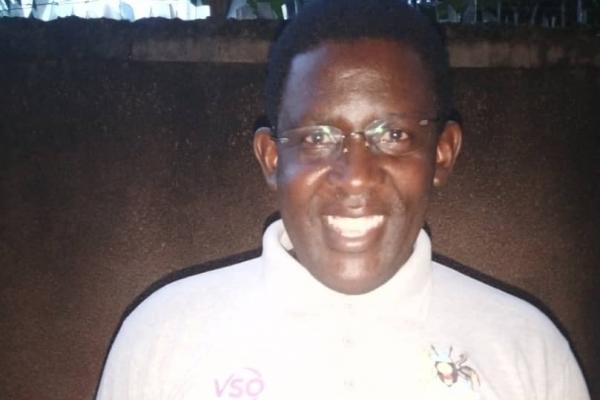
Daniel Adotu, from Soroti, Eastern Uganda, is a volunteer here. He says people in the camp wish to return home – but only when it’s safe to do so.
“I asked young people in the camp about their hopes for the future and they said ‘There is nothing we can do. We are stranded here. There is nowhere to go until our country is safe,’” says
In the meantime, these refugees are in limbo, with the pandemic making life ever harder. After the World Food Programme cut food rations to the camp by 30%, and with the potential for a further 10% cut on the way, residents of Rhino Camp are being pushed to the brink. In fact, Daniel has met people eating just one meal a day.
While the camp is yet to record a single case of COVID-19, the knock-on effect of the virus is immense. Even getting food into the camp can be a challenge. Movement of supplies has been severely reduced, with visitors found in the camps immediately arrested and quarantined.
How can I help?
Daniel was first inspired to support at-risk communities back in 2012, when he started working on a project helping smallholder farmers grow crops and improve their yields. However, the crop was suddenly wiped out by a drought.
“I started thinking how I could remedy this situation. I asked myself, how could I help farmers make their crops resilient to climate change?"
For the last eight years, Daniel has been seeking the answer to this question, and in the last three years has been pursuing a masters examining how farmers can adapt to and mitigate against the effects of climate change.
Now, in the role of resilience and humanitarian response specialist, he is using his expertise to make sure those most in-need receive much-needed food in the midst of the pandemic.
Going hungry
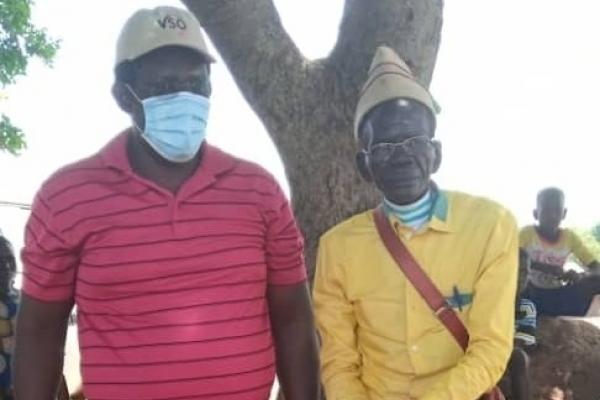
“People have been going hungry. Life is becoming hard for people here,” says Daniel, who in 2019 developed a countrywide emergency response plan for Uganda and trained VSO staff and volunteers in resilience, including information on how to prepare for and reduce the risk of disasters.
In Rhino Camp, Daniel has led the distribution of food to 1,000 households in the camp that are most in need of support. Daniel felt it was important to target those who were suffering most, such as those aged 60 and above, those with disabilities, people who are HIV positive or asthmatic.
The food parcels contain 6-10kg of cornmeal, 2kg of beans and 1.5kg salt. To help families protect themselves from the spread of coronavirus, these families were also given tippy taps (a simple device for hand washing with running water) and 2kg of soap so they could wash their hands.
“We physically verified everyone, so for each person we had a name, number and photograph so we could identify the person and the household size,” said Daniel.
“People were very happy to receive the food. A lot of people have told us the food came at just the right time, when their supplies were really low. Some people had no food at home at all.”
Life on the fringes
Daniel has helped people like Sully (name has been changed) access much-needed food.
“My husband and I are both HIV positive, and we have four children who we are struggling to provide for. We depend on the monthly food rations, which have not been regular due to COVID-19.
“The problem with this sickness is that even after just a short time without good food, your body deteriorates very quickly. I had started developing rashes again and whenever people asked me, I would tell them mosquitoes had bitten me. I felt embarrassed.
“Now, my skin has improved and my appetite is much better. The donation from VSO means we will have sufficient food for the next month. With HIV, good health and nutrition is very important, because the medication I take is very strong.”
Being the change
Daniel Adotu believes in the power of volunteering, saying, “Volunteers are driven by the change they want to see in communities.”
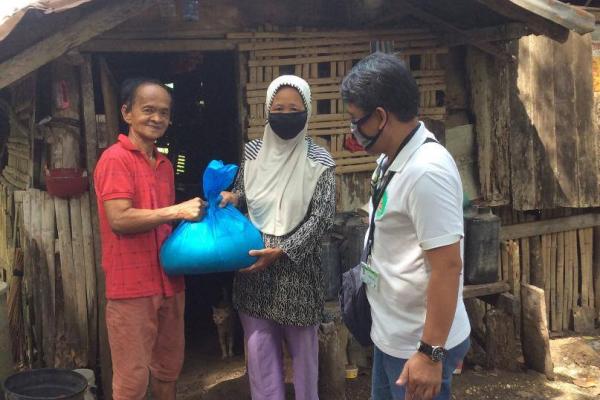
The impact of volunteering is being felt in the Philippines too, where community volunteers are finding people in rural areas who are being overlooked by government support. Volunteers report some people were starving since the government issued a series of local lockdowns from March onwards. After an initial distribution of food parcels to 2,000 households facing deprivation, their details have now been shared with the Ministry of Social Welfare, who will continue to support them and stop families falling into famine.
In Zimbabwe and Zambia, the outlook for some is equally desperate.
“The year 2019 was a catastrophic year for Zimbabwe. Ravaged by a combination of Cyclone Idai, drought and spiralling inflation which crippled the economy… Then throw in COVID-19 and the fact I am an ex-inmate means I am stigmatised and discriminated by society,” said one ex-inmate from Masvingo, Zimbabwe.
In Zimbabwe and Zambia, volunteers have handed out a total of 80 food parcels to former prison inmates and those who are HIV positive. After medical supply chains broke down during local lockdowns, VSO has acquired two bicycles for the transport of essential antiretroviral drugs – essential for maintaining the health of those with HIV.
Daniel says his efforts supplying the camp with food have not gone unnoticed.
My dream is for these people to be able to stand on their own.Daniel AdotuVSO volunteer
“People tell me, ‘Thank you for coming. Things have been so bad for us. If it wasn't for VSO we would have suffered more.’
“My dream is for those in the camp to become self-reliant. I want them to have the vocational and business skills that they need. My dream is for these people to be able to stand on their own.”
In Rhino Refugee Camp, people are being pushed to the limit, but volunteers like Daniel are making sure they have a safety net: over the past five years, VSO volunteers have improved access to food and income for 770,000 people as part of our resilient livelihoods work.
Our work supporting resilient livelihoods
We're empowering people in some of the world's most marginalised communities to access reliable sources of income, including supporting those most at-risk to adapt to the impacts of COVID-19.
Read more
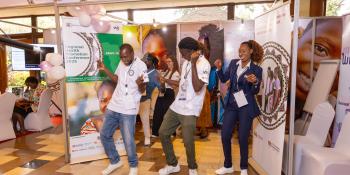
Highlights from the Regional Health Promotion Conference 2025
The Regional Health Promotion Conference 2025 reimagined Universal Health Coverage (UHC) through the lens of intersectionality, by bringing together experts from across East Africa and beyond.
Protecting the biodiversity of the East Tonlé Sap Lake through aquaculture
Aquaculture — the farming of aquatic organisms, such as eels, shellfish, and seaweed, in a controlled environment — is transforming the lives of Cambodian people like Mr Em Phat.
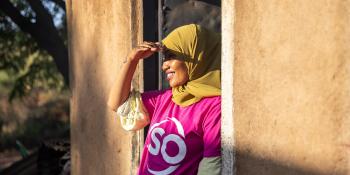
Five things women achieved this year that you might not know about
This International Women's Day, join us in celebrating the resilience of women across the globe with some female achievements you might not have heard about.
